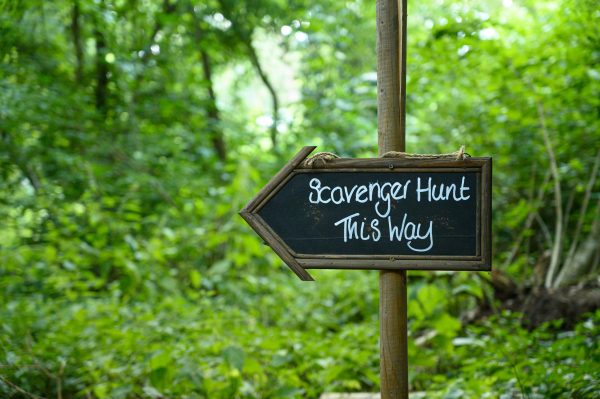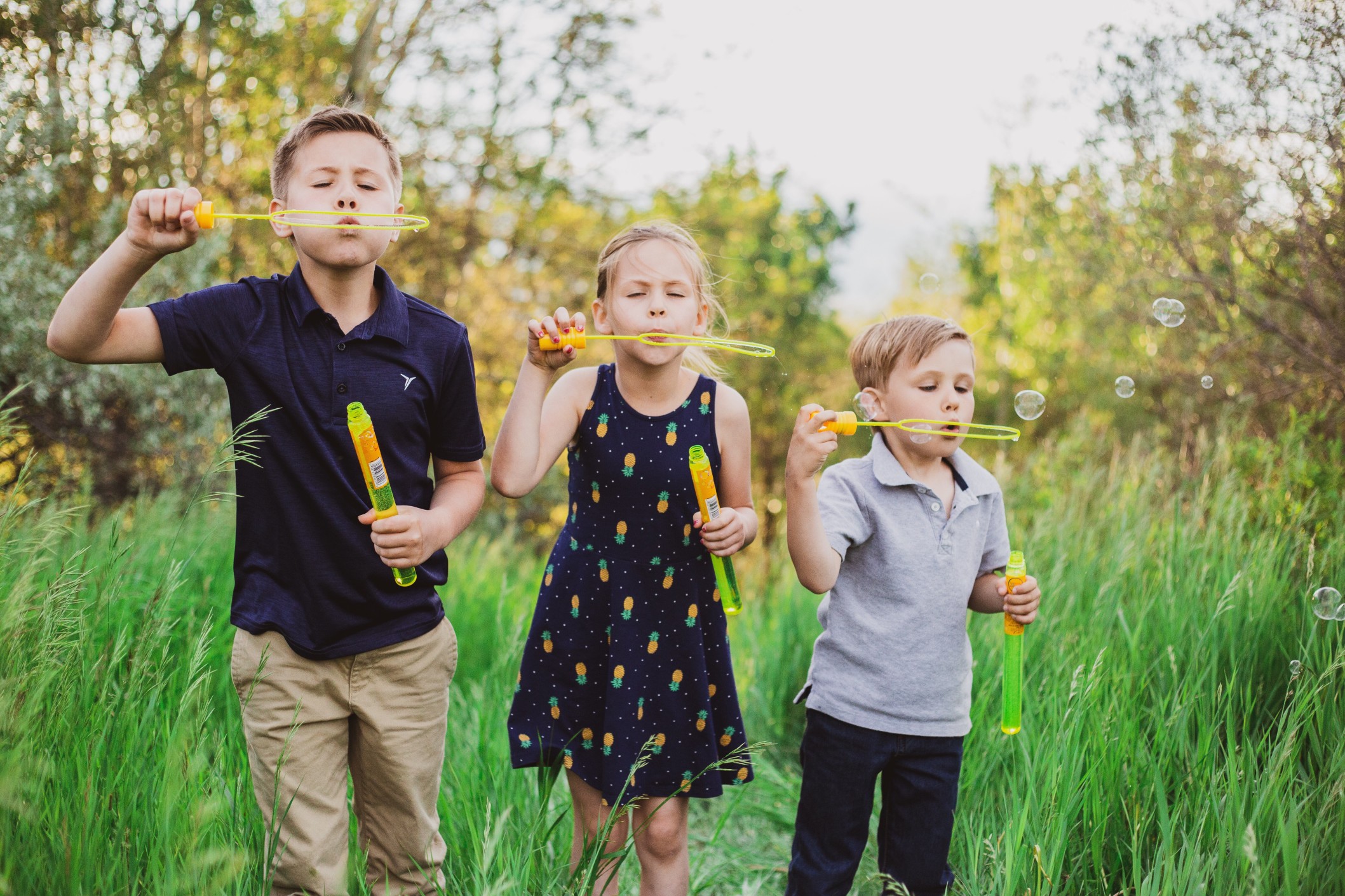A bologna sandwich, an orange, and a locked door. Those are the three essential details in my husband’s recurring story about playing independently outside as a kid. Sometimes, he sprinkles in “hose water” for good measure. He says his mom kicked him out in the morning, gave him lunch outside midday, and kept the door locked ’til dusk.
Studies show how beneficial outdoor play is for kids socially, mentally, and physically. (Did you know it can help prevent nearsightedness?) But when I tell my kids to go outside and play, I get whines of “But what do we do?” and “For how long?” And, if I’m being honest, between schedules, screens, and concerns for their safety, I think I’m partially to blame for their outdoor play deficit. So, how do we encourage independent play outside? Here are 7 things that will help move kids beyond the walls of our homes and into the fresh air.
1. Make your yard kid-friendly.
This takes some work, but it’s worth it. Tidy up the yard so you can have peace of mind when your kids are getting in some independent play. Recycle the rusty swing set, check for wasp nests, and make sure someone picks up after the dog (ew!). You’ll send the kids outside knowing the only potential danger is a sunburn.
2. Make outside toys accessible and clean.
In a parenting misstep, we organized the garage and put the kids’ bikes in a spot neither of them could reach. They didn’t ride for three months. Out of sight, out of mind! Your kids are more likely to go outside and play if their glove and ball, hula hoop, sidewalk chalk, or scooter are visible and not buried under boxes or tools. And that plastic play set? Give it a good hose off now and then.
3. Use an “I wonder” prompt.
My sons went from not wanting to go outside at all to playing around our oak tree for over an hour simply because I said, “I wonder if there’s anything living in that tree’s knot.” The words “I wonder” are hard for kids’ brains to resist, so try using them to prompt independent play outdoors. “I wonder how big that ant pile has gotten.” “I wonder how big you can blow bubbles with that wand.” “I wonder if you can jump and reach the top of the fence post.”
4. Snacks!
When my sister and I played outside, we’d eat those ice pops in plastic tubes. We’d snip off the top and suck down the purple or orange sugar water, leaving behind pale ice. What special treat could be your kids’ outdoor snack? You don’t have to give it to them every day, but try surprising them next time they’re playing, and they’ll taste the sweetness of outdoor play.
5. Get to know neighborhood kids.
Research published in the National Library of Medicine found that outdoor play with other children is good for kids’ executive function, cooperation, social connectedness, and communication skills. Not sure if there are kiddos on your block? Start by simply getting outside. Take a lap or shoot hoops in the driveway; if kids are around, they’ll come out of the woodwork.
6. Limit screen time.
My son lost Sunday screen privileges because he didn’t turn in a math assignment. He grumbled the morning his sentence was to be carried out, but at the end of the day, he said, “Mom, I think it was a good thing that I couldn’t be on my tablet. We had a great day.” Little effort is required to be entertained via a screen, and an object at rest stays at rest. So try removing technology for one day of the weekend, and you might find your kids are eager to spend more time outside.
Try removing technology for one day of the weekend, and you might find your kids are eager to spend more time outside. Click To Tweet7. Get yourself outside.
Moms are like magnets for young kids. If I head outside with a folding chair and a book, my kids will be right behind me, and I bet the same is true for you. Grab your gardening gloves, and let the kids play in the sprinkler while you pull weeds (or after everyone pulls weeds). Getting yourself outside draws the rest of the family out and gives you a healthy dose of vitamin D, which can help stabilize your mood, boost immunity, and support bone health.
Try making independent play outdoors part of your kids’ daily routine: Eat a snack, do homework, and head outside. If you’re nervous about letting them play independently, start small and set firm boundaries, like one trip around the subdivision with you on the other end of a walkie-talkie. They’ll love the freedom and take new adventures every day.
What was your favorite thing to play outdoors when you were a kid?










